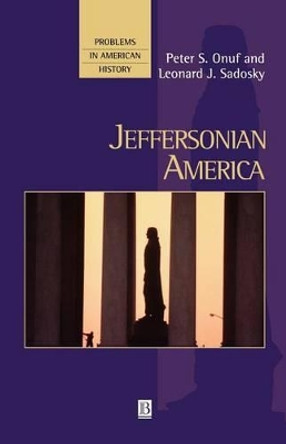Description
Jefferson's vision of an American "empire for liberty" was modeled on a British prototype. But as a consensual union of self-governing republics without a metropolis, Jefferson's American empire would be free of exploitation by a corrupt imperial ruling class. It would avoid the cycle of war and destruction that had characterized the European balance of power.
The Civil War cast in high relief the tragic limitations of Jefferson's political vision. After the Union victory, as the reconstructed nation-state developed into a world power, dreams of the United States as an ever-expanding empire of peacefully coexisting states quickly faded from memory. Yet even as the antebellum federal union disintegrated, a Jeffersonian nationalism, proudly conscious of America's historic revolution against imperial domination, grew up in its place.
In Onuf's view, Jefferson's quest to define a new American identity also shaped his ambivalent conceptions of slavery and Native American rights. His revolutionary fervor led him to see Indians as "merciless savages" who ravaged the frontiers at the British king's direction, but when those frontiers were pacified, a more benevolent Jefferson encouraged these same Indians to embrace republican values. African American slaves, by contrast, constituted an unassimilable captive nation, unjustly wrenched from its African homeland. His great panacea: colonization.
Jefferson's ideas about race reveal the limitations of his conception of American nationhood. Yet, as Onuf strikingly documents, Jefferson's vision of a republican empire-a regime of peace, prosperity, and union without coercion-continues to define and expand the boundaries of American national identity.
About the Author
Peter S. Onuf, Thomas Jefferson Memorial Foundation Professor of History at the University of Virginia, is the editor of Jeffersonian Legacies and, with Jan Lewis, of Sally Hemings and Thomas Jefferson: History, Memory, and Civic Culture.
Reviews
Jefferson's Empire is brilliant work by the historian best qualified to give us a new and thorough analysis of Jefferson's concepts of empire, nation, and union. It offers both a fresh angle of vision on Jefferson himself and a superb contribution to the renewed understanding of the importance of federalism to the founding generation." -Lance Banning, University of Kentucky
"Peter Onuf has written a fine study of Jefferson's political thought approached as a coherent body of principles and affirmations formed during the critical years between his entering the lists as a polemicist for the patriot cause and his move to form an opposition to the Federalist policies in Washington's administration twenty years later. Jefferson's Empire is tightly argued, forcefully written, and intellectually challenging." -Joyce Appleby, University of California, Los Angeles
Book Information
ISBN 9780813920900
Author Peter S. Onuf
Format Paperback
Page Count 271
Imprint University of Virginia Press
Publisher University of Virginia Press
Weight(grams) 418g







